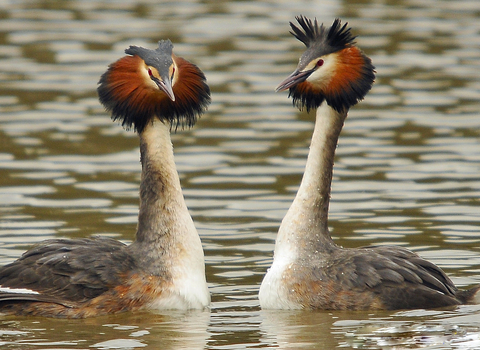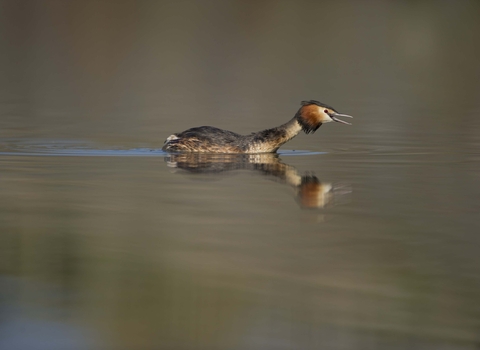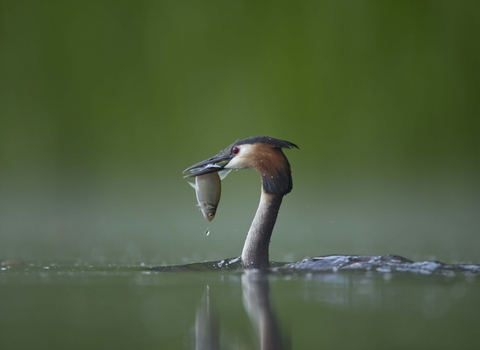
©Steve Waterhouse

©Andrew Parkinson/2020VISION

©Andrew Parkinson/2020VISION
Great crested grebe
The graceful great crested grebe is a familiar sight on our lakes and reservoirs, and is well-known for its elaborate courtship dance, during which it rises vertically out of the water and shakes its head.
Scientific name
Podiceps cristatusWhen to see
January to DecemberTop facts
Category
Stats
Length: 45-51cmWingspan: 88cm
Weight: up to 1.1kg
Average lifespan: 10-15 years
Common. Classified in the UK as Green under the Birds of Conservation Concern 5: the Red List for Birds (2021).
Habitats
About
Grebes are diving waterbirds, feeding on small fish and aquatic invertebrates. A little bit larger than a coot, great crested grebes nest on floating platforms made up of waterweed. They can be found on lakes and reservoirs everywhere.What to look for
The largest and most often seen grebe, the great crested grebe has an impressive plume on its head and orange ruff around its neck during the breeding season. It has white cheeks, a dark cap, a white neck and a dark body.Where to find
Widespread.Did you know?
Never mind Strictly Come Dancing, to see some fancy footwork head down to your local lake or reservoir to watch the wild dance of great crested grebes. Their early spring courtship includes 'mewing' and calling, synchronised swimming, preening and fanning out their feathery ruffs.Watch
Great crested grebes (https://vimeo.com/444887476)
Great crested grebes displaying by Tom Hibbert
